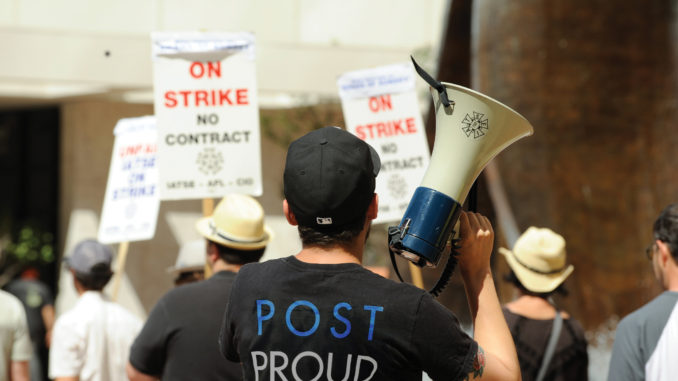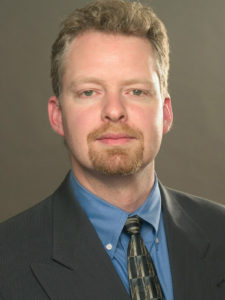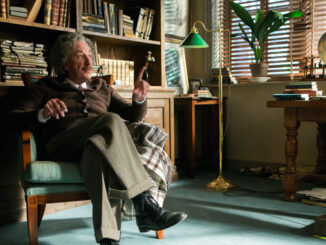
By Tris Carpenter

The stated and obvious purpose of the IATSE International Convention is to bring together nearly 900 delegates from over 400 local unions across the United States and Canada to conduct the business of the union and elect officers. But the meetings and motions are only part of the story. In the time the delegates spend together, we also share and celebrate the victories we’ve won, the difficulties we’ve faced and the tactics we’ve used to overcome obstacles. From this fellowship, we learn from each other and take home fresh ideas. And in the end, we are reminded that we all fight for the same thing: a better workplace for the members we represent.
Part of my assignment at the recent 66th Convention (held in Orlando, Florida, July 25-31) was to attend some of the various caucuses that are held by different sectors of the entertainment industry. I attended the Projectionists Caucus, the Ticket Sellers and Treasurers Caucus and the Animation Caucus. I was struck by how each of these groups was struggling with a profound but similar problem––the way technology was changing (and in some cases eroding) the jobs of their membership. And, more strikingly, the solution for many of them was the same: Organize.
The projectionist locals are seeing the beginnings of what will likely become an onslaught of digital cinema. They are trying to adapt to the changing technology by training their members and sharing information across locals. Some locals are being even more aggressive and trying to capture new ground by organizing in convention and hotel audio-visual work. Others have even taken to trying to organize the rest of the staff in the cinema––an effort that is very difficult for many of them to contemplate but one that probably must be done if they hope to maintain their organized work.
The ticket sellers and treasurers are coping with “ticketless” events and online ticket buying. Much of their traditional work has disappeared and their jobs have been morphed into the venue IT departments. Some locals have managed to negotiate with their employers to have the existing ticket sellers train for those IT positions and retain coverage under the union contract. Other locals have simply tried to organize the IT workers. I was also surprised at how many locals did not cover subscription and/or season ticket offices, and there was great interest in taking on the challenge of organizing them to build more leverage.
Animators, of course, have faced some difficult times as their work has gone overseas, primarily to Southeast Asia. The pre- and post-production for animated features and television has stayed in the US, but the actual animation has gone away in large part. However, the advent of Flash technology, interestingly, has brought some of that work back to the US, and it will need to be organized. And the visual effects work that so many films now heavily rely upon is also an area where there have been some significant organizing victories, and more campaigns are in progress.
I was struck by how each of these groups was struggling with a profound but similar problem––the way technology was changing (and in some cases eroding) the jobs of their membership. And, more strikingly, the solution for many of them was the same: Organize.
All this got me thinking about our own problems. We’ve struggled with digital intermediate and/or digital daily processes that have siphoned off assistant editor work. We’ve managed to capture a sizable share of reality television but have yet to flip some of the major players in that arena. And our Field Representatives spend a great deal of time chasing around some rather sneaky sound houses that try to fly under the radar and steal work that should be done by union companies.
Yet the key to solving each of these seemingly disparate problems is one and the same: Organize. We can organize and recapture that assistant editor work. We can organize and bring more reality television under contract. We can organize those sneaky companies and make sure that union work is done by union sound houses. The men and women working in each of these areas of post-production deserve a union contract and we, as a union, need to help make that happen.
The IATSE Convention was a wonderful reminder that, even though the problems we face are substantial, if we work together there is so much we can achieve. And the rewards will go not only to those unorganized post-production employees we do organize, but also to our current members in the greater leverage we build in our industry.
A union is only as strong as the membership it serves. All of you can help by being the union’s eyes and ears across the industry. We need contact information for people working in digital intermediate/digital daily houses. We need help in building organize campaigns in reality television. We need help in identifying employers who are trying to skirt around the contract.





